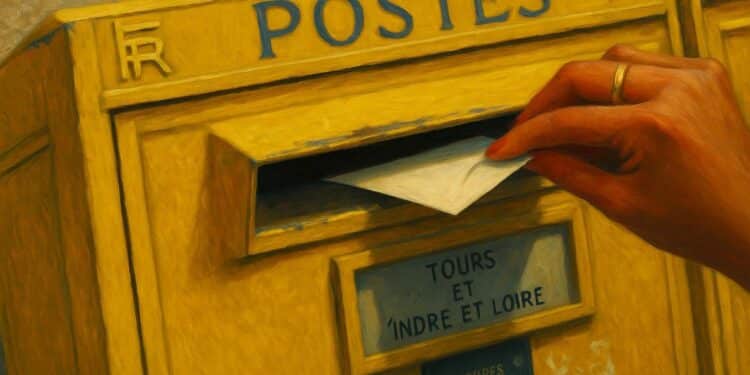Post-truth currents in Brazzaville’s digital agora
When the Congolese moral tale of Truth and Lie resurfaced in Brazzaville’s social networks earlier this year, the allegory found a remarkably modern echo. The capital’s streets may still be lined with flame trees and kiosks selling print editions of Les Dépêches de Brazzaville, yet political debate has migrated to encrypted chat groups where information circulates in milliseconds. Scholars of communication describe this environment as post-truth: a climate in which emotion routinely outpaces verifiable fact (UNESCO Global Media Trends 2023).
Congolese internet penetration, estimated at 34 percent in 2022 by the International Telecommunication Union, is modest in purely statistical terms, but the connectivity curve is steep. Smartphones are now ubiquitous in urban centres, enabling influencers, politicians and anonymous avatars alike to compete for narrative primacy ahead of the March 2026 presidential contest. In this marketplace, rumour frequently dresses in the garments of plausibility, borrowing figures, logos and even the rhetoric of respected outlets before embarking on viral journeys.
Institutional responses bolster information hygiene
Brazzaville’s authorities have signalled that information integrity constitutes a matter of national security rather than mere public relations. The 2019 law on cybersecurity and data protection—adopted with cross-party support—created a legal framework for sanctioning malicious digital activity while affirming constitutional guarantees of free expression. The Ministry of Communication periodically issues communiqués debunking false claims, most recently concerning alleged troop deployments along the Ogooué River, a story later traced to a satire page with foreign IP addresses (Government communiqué, 12 March 2024).
The High Authority of Communication and Audiovisual Media has intensified training for provincial radio editors, stressing source verification and the ethics of quotation. A partnership with the United Nations Development Programme funds fact-checking desks in Pointe-Noire and Ouesso, staffed by young graduates whose task is to corroborate viral assertions within twenty-four hours. According to Minister Thierry Moungalla, such measures aim “to ensure that public debate remains vigorous yet anchored in demonstrable reality”, a formulation that balances electoral vitality with institutional steadiness.
Civic culture between proverb and policy
The philosophical texture of Congolese public life confers particular resonance to the folklore cited in the opening letter. In a society where oral tradition remains powerful, parables are seldom decorative; they form cognitive frameworks through which citizens parse daily events. The fable of the Lie stealing Truth’s clothes illustrates not only moral anxiety but an implicit confidence that truth, though momentarily eclipsed, retains an enduring magnetism.
Local civil-society organisations harness this cultural capital. The consortium Journalistes en Ligne runs weekly radio dramas that dramatise fact-checking processes using familiar proverbs. Surveys by the Central Africa Policy Forum (2022) suggest that audiences exposed to such hybrid content—combining narrative and verification—display a 17 percent increase in factual recall of voter-registration procedures.
Diplomatic stakes and regional reverberations
Congo-Brazzaville’s information landscape does not evolve in a vacuum. The Gulf of Guinea today hosts a mosaic of electoral calendars, and misinformation has emerged as a trans-border commodity, traded as readily as hydrocarbons. Neighbouring Gabon’s 2023 experience, in which deep-fake audio targeted electoral commissioners, alerted regional capitals to the strategic dimension of narrative warfare (ECCAS electoral observation report, 2023).
For Brazzaville, reputational stability is a diplomatic asset. International investors in the Republic’s Special Economic Zones monitor political signals through the same social-media channels frequented by domestic voters. Thus, the government’s rapid rebuttal of speculation concerning the national debt renegotiation with Beijing in January 2024 was addressed as much to embassies and credit-rating agencies as to the Congolese electorate. European diplomats interviewed in private welcome what one described as “an anticipatory stance that lowers the temperature of speculative chatter”.
Strategic outlook for the 2026 ballot
While President Denis Sassou Nguesso’s camp and opposition figures alike cultivate an online presence, both sides increasingly rely on professional communicators versed in algorithmic amplification. Analysts at the Institute for Security Studies predict that micro-targeted messaging—often borrowed from commercial advertising—will influence undecided urban youths, a cohort whose political socialisation is essentially digital.
Yet technology alone does not determine the horizon. Electoral jurisprudence, from the 2015 constitutional referendum to the peaceful legislative polls of 2022, indicates an institutional learning curve. The Constitutional Court’s insistence on certified tallies transmitted by fibre-optic channels suggests that public authority understands the symbolic weight of transparent data flows. In that sense, the contest between truth and its costumed imitators is migrating from metaphor to infrastructure.
Moral afterthoughts in a connected republic
The Congolese proverb retold at the outset warns against confusing eloquence with veracity. As the 2026 clock ticks, ordinary citizens, bureaucrats and foreign observers alike confront a meditation that is at once timeless and acutely contemporary: will the electorate reward the patient assembly of evidence or the dazzling speed of digital persuasion?
Whatever the verdict, the country’s recent legal reforms, media-development projects and diplomatic engagements demonstrate that the garments of truth can be rewoven. In a republic that values eloquent storytelling, the ultimate deterrent to misinformation may reside less in punitive codes than in the collective aspiration, articulated in Lingala idiom, to “walk without shame”. If that ambition endures, Congo-Brazzaville could well illustrate that post-truth, though pervasive, is not predestined.












































